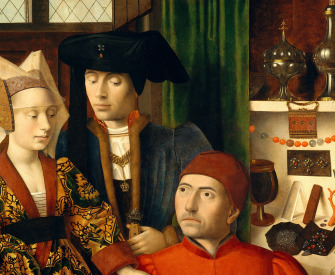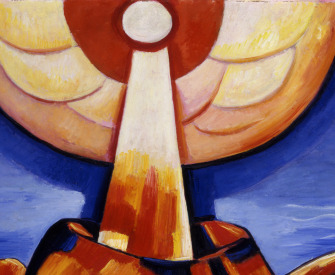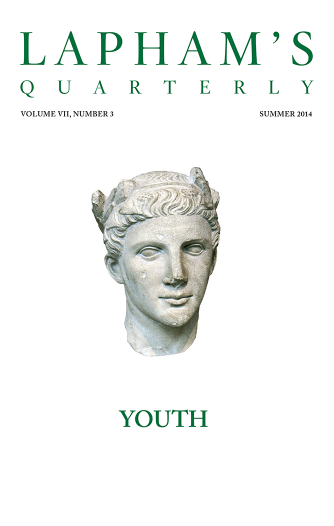I care. I care about it all. It takes too much energy not to care.
—Lorraine Hansberry, 1965Civilization
Mohandas K. Gandhi considers a treatable disease.
Let us first consider what state of things is described by the word civilization. Its true test lies in the fact that people living in it make bodily welfare the object of life. We will take some examples.
The people of Europe today live in better-built houses than they did a hundred years ago. This is considered an emblem of civilization, and this is also a matter to promote bodily happiness. Formerly they wore skins and used spears as their weapons. Now they wear long trousers; for embellishing their bodies, they wear a variety of clothing; and instead of spears, they carry revolvers containing five or more chambers. If people of a certain country, who have hitherto not been in the habit of wearing much clothing, boots, etc., adopt European clothing, they are supposed to have become civilized out of savagery. Formerly, in Europe, people plowed their lands mainly by manual labor. Now one man can plow a vast tract by means of steam engines and can thus amass great wealth. This is called a sign of civilization. Formerly the fewest men wrote books that were most valuable. Now anybody writes and prints anything he likes and poisons people’s minds. Formerly men traveled in wagons; now they fly through the air in trains at the rate of four hundred and more miles per day. This is considered the height of civilization. It has been stated that, as men progress, they shall be able to travel in airships and reach any part of the world in a few hours. Men will not need the use of their hands and feet. They will press a button and have their clothing by their side. They will press another button and have their newspaper. A third, and a motorcar will be waiting for them. They will have a variety of delicately dished-up food. Everything will be done by machinery. Formerly, when people wanted to fight with one another, they measured between them their bodily strength; now it is possible to take away thousands of lives by one man working behind a gun from a hill. This is civilization. Formerly men worked in the open air only so much as they liked. Now thousands of workmen meet together and for the sake of maintenance work in factories or mines. Their condition is worse than that of beasts. They are obliged to work, at the risk of their lives, at most dangerous occupations, for the sake of millionaires. Formerly men were made slaves under physical compulsion; now they are enslaved by the temptation of money and of the luxuries that money can buy. There are now diseases of which people never dreamed before, and an army of doctors is engaged in finding out their cures, and so hospitals have increased. This is a test of civilization. Formerly special messengers were required and much expense was incurred in order to send letters; today anyone can abuse his fellow by means of a letter for one penny. True, at the same cost, one can send one’s thanks also. Formerly people had two or three meals consisting of homemade bread and vegetables; now they require something to eat every two hours, so that they have hardly leisure for anything else.
What more need I say? All this you can ascertain from several authoritative books. These are all true tests of civilization. And if anyone speaks to the contrary, know that he is ignorant. This civilization takes note neither of morality nor of religion. Its votaries calmly state that their business is not to teach religion. Some even consider it to be a superstitious growth. Others put on the cloak of religion and prate about morality. But after twenty years’ experience, I have come to the conclusion that immorality is often taught in the name of morality. Even a child can understand that in all I have described above there can be no inducement to morality. Civilization seeks to increase bodily comforts, and it fails miserably even in doing so.
This civilization is irreligion, and it has taken such a hold on the people in Europe that those who are in it appear to be half-mad. They lack real physical strength or courage. They keep up their energy by intoxication. They can hardly be happy in solitude. Women, who should be the queens of households, wander in the streets, or they slave away in factories. For the sake of a pittance, half a milion women in England alone are laboring under trying circumstances in factories or similar institutions. This awful fact is one of the causes of the daily growing suffragette movement.
This civilization is such that one has only to be patient and it will be self-destroyed. According to the teaching of Muhammad this would be considered a satanic civilization. Hinduism calls it the Black Age. I cannot give you an adequate conception of it. It is eating into the vitals of the English nation. It must be shunned. Parliaments are really emblems of slavery. If you will sufficiently think over this, you will entertain the same opinion and cease to blame the English. They rather deserve our sympathy. They are a shrewd nation, and I therefore believe that they will cast off the evil. They are enterprising and industrious, and their mode of thought is not inherently immoral. Neither are they bad at heart. I, therefore, respect them. Civilization is not an incurable disease, but it should never be forgotten that the English people are at present afflicted by it.

Mahatma Gandhi
From Hind Swaraj. After studying law in London, Gandhi moved to Natal, South Africa, to practice. He cited his indignation at being placed in the same social category as working-class Indian immigrants as the inspiration for his later activism against British racism. He composed this text on a return voyage from London to South Africa, writing with his left hand when his right hand began to hurt and completing the text in ten days. It ran in installments in Indian Opinion, a newspaper he had founded in Durban in 1903; it was immediately banned by the British government in India.


